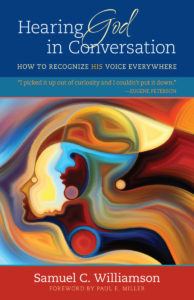In 1975, three friends and I participated in a 200-mile bicycle marathon on Belle Isle, an island-park owned by the city of Detroit. The course was a five-mile circuit which you circled forty times. Every time you passed the “finish line,” someone stamped your plastic vest. The race lasted twenty-four hours and the goal was to get forty stamps, representing 200 miles.

My friends and I were foolish high school boys (pardon my redundancy) and not one of us trained for the event. I had to borrow an “English racer” (with its tortuously narrow racing seat) because I didn’t even own a bike. Nevertheless, we decided to ride forty-one circuits (sort of a biker’s-dozen of 205 miles) just to say we did.
The race began at noon on a Saturday. We rode at a reasonable speed, and by midnight, we had biked 180 miles. We were ahead of schedule, a bit tired, and didn’t want to finish at 1:30 in the morning, so we decided to take a sleep-break.
The ground was wet and we hadn’t brought sleeping bags, so we found four plastic trash bags and curled up fetal-style for a nap. (Did I mention we were foolish high school boys?)
When we awoke, our legs had stiffened into baked pretzels; we could barely straighten them much less pedal a bike. One of us decided 180 miles was good enough and quit; two of us wobbled our way the final 20 miles; and one of us went the extra lap for 205 miles.
Later, the “biker’s-dozen” boy casually critiqued our failure by observing that we “just didn’t have the willpower” that he has.
The Insidious Self-praise of Willpower
The idea of willpower was created by the Victorians. The Industrial Revolution made them believe they could control their environment, so: Hey, if we can manage nature through horsepower, let’s rule ourselves through willpower. They worshipped their power over the self:
Will-power is self-mastery. It is kingship over all life. At the center of your being sits yourself. Your seat ought to be a throne. If you are not in control … you are not the king you should be. (James Russell Miller, 1911)
The strength of life is measured by the strength of your will. (Henry Van Dyke, 1908)
English-speakers survived for centuries without “willpower” in their vocabulary. According to The Oxford English Dictionary, the first time the word was ever penned was in 1874. Its use immediately proliferated as thinkers used it to praise their own strength.
Real-power
Unfortunately, many Christian adopt this godless Victorian idea. We resist sexual temptation (or take our daily prayer time) through our willpower and self-discipline. But that leaves other believers feeling helpless because they don’t have our pedal-power.
Any goodness that draws attention to our own strengths is a hindrance to leading people to God. If our holiness does not draw others to Christ’s miraculous life in us, we are worshipping a false god. We have put ourselves on the throne.
God calls us to doubt natural strengths not glory in them. Eternal life is not merely a gift of God, but the life of God himself in us. Only in him can we do all things, because he can do all things, and he lives in us.
We need God-power not willpower. Our natural willpower decreases as God’s life in us increases. So, when others see us, they can hope. Because God can live in them too.
I finished, (just barely) that bike marathon in 1975. But I didn’t ride a bike again for ten years. I simply didn’t have the willpower.
Besides, my butt still hurt.
Sam
+++++++
To grow in “I must decrease and he must increase,” let us nurture the life of God in us. I know of no better way than to regularly hear God’s voice in our daily lives. Buy Hearing God in Conversation now.
Gary Wilkerson, pastor, son of David Wilkerson, and  president World Challenge said:
president World Challenge said:
A key longing in every human heart is to connect with God, to actually hear his voice. Sam Williamson has written a remarkable book that teaches both how to hear God’s voice in Scripture, and then to hear his voice in every avenue of life. It’s filled with humor, insight, practical tips, and sound theology. I can’t recommend a better guide than Hearing God in Conversation.
[button href=”https://www.amazon.com/Hearing-God-Conversation-Recognize-Everywhere/dp/0825444241/ref=cm_cr_arp_d_product_top?ie=UTF8″ primary=”true” centered=”false” newwindow=”true”]Buy Now[/button]

 Is Sunday School Destroying Our Kids?
Is Sunday School Destroying Our Kids?
I just had an “ah ha” moment courtesy of the Holy Spirit and your article. And it is kind of related to your writing. I did not know the history of the word willpower – that it is a relatively modern word. My ah ha came when it occurred to me that I subconsciously read willpower into the word self-control when reading about the fruit of the Holy Spirit indwelling in us. A lifetime of confusion since I judged self-control as an act of willpower and therefore a fruit of the fleshly nature. The Holy Spirit has been retraining me about self-control for a while now … and this article really helped with fine tuning my new belief system. You still rock. 🙂
Hi Joanne,
THANK YOU! I didn’t make that connection either until you did in your comment. I never really examined “self-control” as much as assumed it was just me exerting my determination over myself.
But you are absolutely, 100% correct. It is a fruit of the Spirit, which means it is God’s life in us. Not me in my flesh trying to rule my flesh.
Thank you!
Sam
Sam-
Delightful article..and true! Love you slightly different perspective on things (that is a compliment, I think).
I am the guy that asked about reguly monthly donations…any progress on that?
Hi John,
Thanks! I take “different” as a compliment, as long as it isn’t different from God’s Word. Because I think his Word is definitely different than our normal thinking.
And I’m working on getting a monthly donation available. Thanks for the reminder.
Sam
Thank you for this article. Willpower has, at times, made me miserable, as I realize that I am greatly lacking. Willpower is often connected with dieting, obesity, over-eating, battles I’ve fought since childhood. If I eat that chocolate, I have no willpower and on and on. I have now turned to prayer instead of willpower. God knows that I’m hurting, and I know he cares.
I’m torn. On one hand, I want to use any resource available to help live life; on the other hand, reliance on “willpower” is pretty dangerous.
It is frequently the source of either pride or despair. In my story above, one of my friends belittles us who don’t have his “willpower.” In doing so, he both showed his pride and brought us mini-despair.
Any power apart from God does that. It inflates the self. Only power from God can make us both powerful and humble at the same time.
Thanks for sharing.
Excellent. Feel free to do a few more contrasting willpower vs self-control vs being your best authentic self vs being a child of God who simply abides in The Vine.
I needed this reminder that it’s not how much I can handle, but how much strength He places in me!
Ahh, my willpower for Thy willpower. When I’m weak, He is strong. Not when I’m strong, He is strong. Interesting stuff. Thanks, Sam.
I’d never heard it put that way: “Not when I am strong he is strong.”
I like it!